A popular Midlands strawberry farm goes ‘against the machine’ to resist housing development
It is a weekday around 1 p.m., but there are still about a dozen cars in the Cottle Strawberry Farm lot.
Earlier in the day, the farm hosted kids from an area school, showing them how the farm works and what the new property has to offer.
Kyra Safranca — mom to two “littles,” as she calls her kids, who are jumping on what looks like an open-air bounce house — just came for the strawberries. Her friend found the farm on Facebook.
They didn’t expect the massive children’s play area.
Hunter Bulloch, who runs the farm, has two young kids of his own. He’s still thinking of new activities to add to the park. This fall, he wants to try to make a corn maze.
Community members say they’re glad to have a staple for family outings and local produce, particularly as the Lower Richland area continues to add new residents and new housing options.
But there was a time when the farm’s future wasn’t so certain. Just after Joy Cottle bought the former Sedgewood Country Club property in 2019 with hopes to expand the farming operation, a housing developer offered her $6 million for the site.
“She could have made a whole lot of money,” Bulloch, Cottle’s son, said.
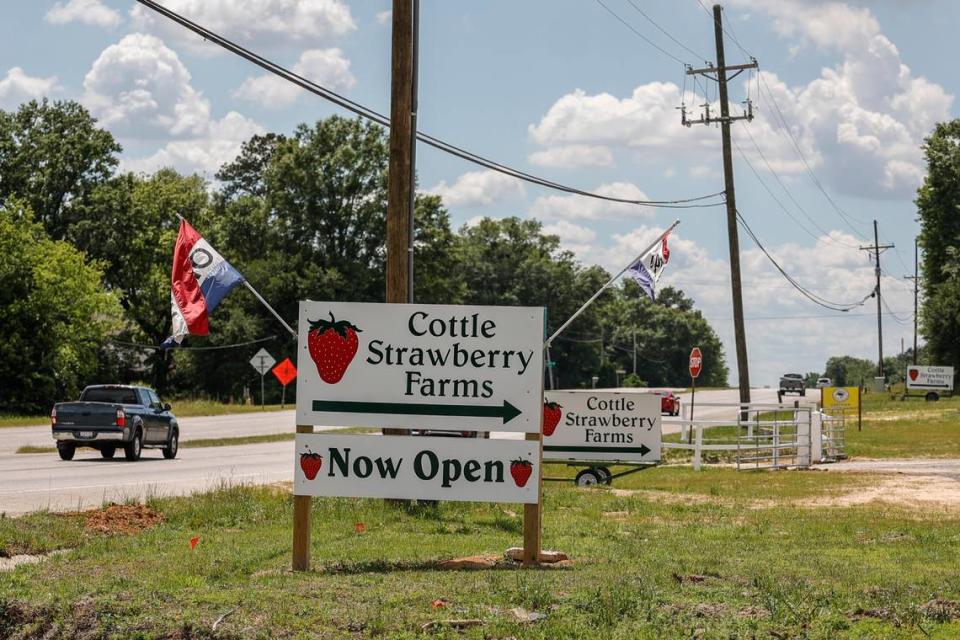
But instead, the family decided to keep the farm and lean into their dreams of running one of the best agro-tourism sites in the state.
The story isn’t surprising in an area that has seen a recent boom in new development. Everywhere you look on your way down U.S. Highway 378 are signs advertising new subdivisions, or land that could be new subdivisions.
Bulloch said he knows the development won’t stop, but he hopes to add to the local economy and give residents something a little different to look forward to in their community.
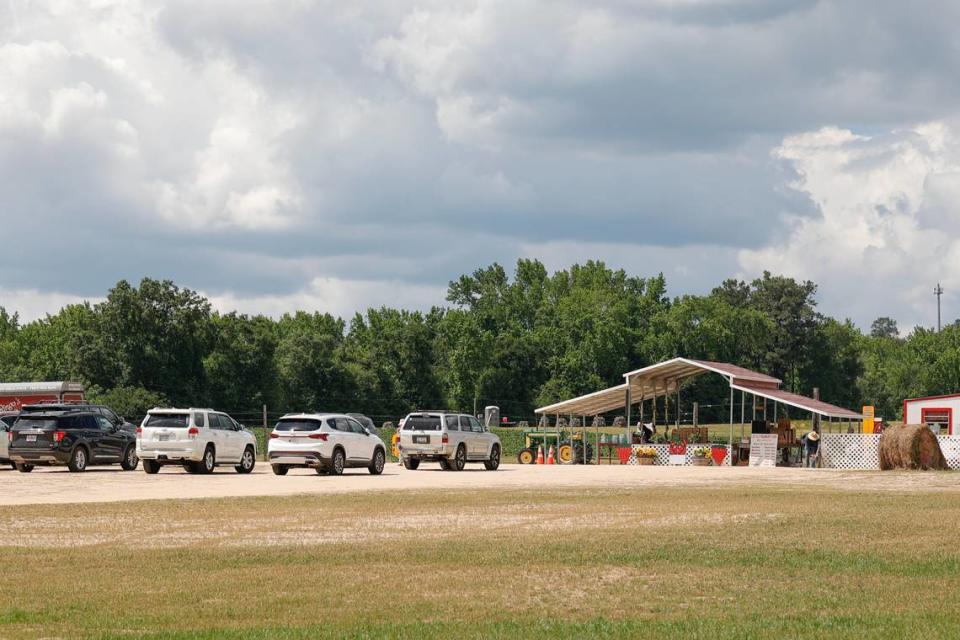
A dream realized
Ned Cottle started the first U-Pick strawberry farm in the Carolinas about 60 years ago. His influence is still palpable at the new Cottle Strawberry Farm location at 9560 Garners Ferry Road, situated about a half-hour outside of downtown Columbia, headed toward Sumter.
Antique tractors, owned by Bulloch’s grandfathers, dot the new property. Bulloch has used trees from the site to make benches and swings, and his mind is still spinning with new ideas for the property that is five times the size of their last Hopkins farm.
A 12-acre Family Fun Park, built largely by Bulloch and the Cottle Farm crew, is still expanding on one end of the property. There, Bulloch has built basketball courts, mini-golf holes, a rock climbing wall, sand boxes, rope mazes, and even a slide that goes through the center of a hill.
Bulloch has a 3-year-old and a 6-year-old, so he knows a thing or two about how to keep kids occupied.
But it’s not all games – the farm also has five times more farming land than the last farm 3 miles away on Trotter Road. That property had about 20 tillable acres. This one has more than 100 acres to farm.
Bulloch wants to add blueberries, flowers, melons and, later, a U-pick pumpkin patch.
The expansion is more than four years in the making. The family bought the new property in 2019, but they’ve “spent years working on our roots,” Bulloch said. Now, they’re ready to flower.
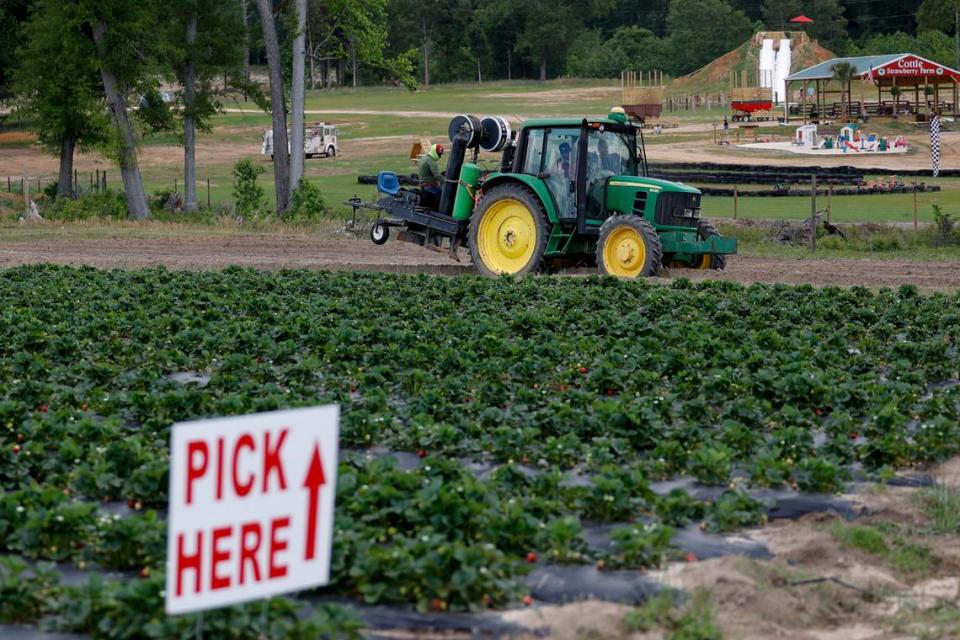
Bulloch has big hopes for the property, but he does have some nagging worries about making sure the farm stays profitable so it can compete with corporate farms that can sell the same produce for much cheaper.
“We obsess over this place,” he said, adding that he hopes the farm will become a destination not just for those passing through Columbia but for the entire state.
At a sandbox filled with corn kernels and playground equipment – yes, you read that right – 3-year-old William is shoving corn into his pockets as his grandparents Jerry and Angie Weidner watch on.
Jerry came here when the property was still a golf course, and he’s impressed with what Cottle Farm has managed to do with the sprawling site. For Angie, she’s thankful to have a local business to support while also having somewhere to bring the grandkids during the day.
“We will support them a lot so they can keep it up,” she said.
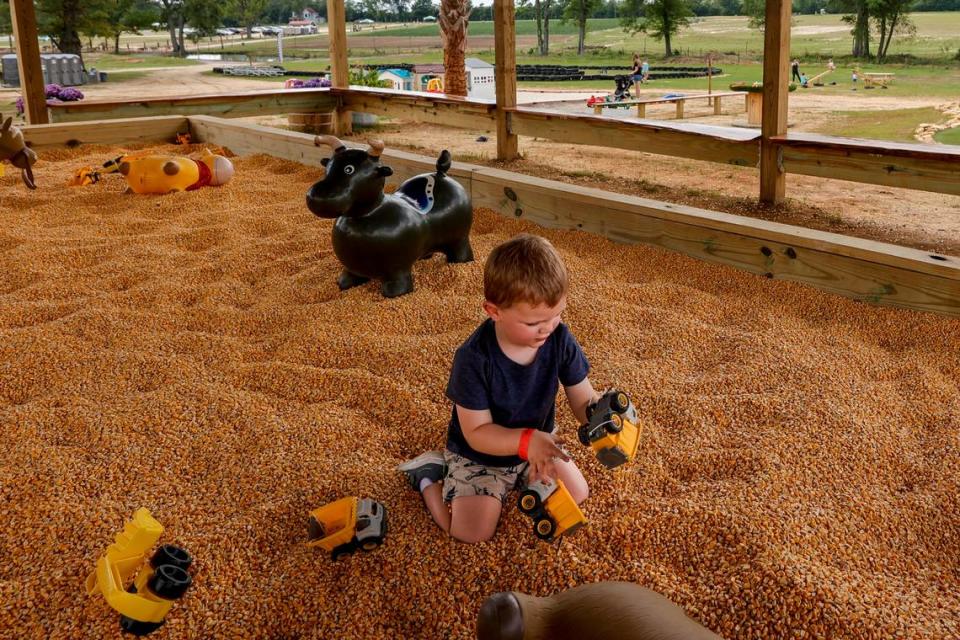
At the same time that new housing development is soaring in the area, there are concerns about protecting farmland in Lower Richland, and across the state’s rural communities.
And Cottle Farm has become something of a poster child for making that statement.
S.C. Gov. Henry McMaster used Cottle Farm in April as the location to sign the Working Agricultural Lands Preservation Act – a law that creates a fund to buy development rights for agricultural land.
But Cottle Farm isn’t making a statement against development, Bulloch said, even though they are “going against the machine a little bit.”
A housing rush
Mungo Homes, NAI Columbia, Savannah Woods – these and more names dot the roadway in Lower Richland advertising land and property to the state’s influx of new residents.
Everywhere you look, land is being cleared and new houses are going up.
“When I was going to school, there was absolutely nothing over there,” said Cheryl English, a Lower Richland High School graduate and Richland County Council representative for District 10, which covers a portion of the Lower Richland area.
She won’t call Lower Richland the final frontier, but it sometimes feels that way, as the Columbia area continues to sprawl.
The new housing isn’t a bad thing, English said. People do need homes to live in. But the growing pains of the area are also clear. Residents have raised concerns about several potential new projects, and even the Richland 1 school district has questioned whether the schools have the capacity for an influx of new students.
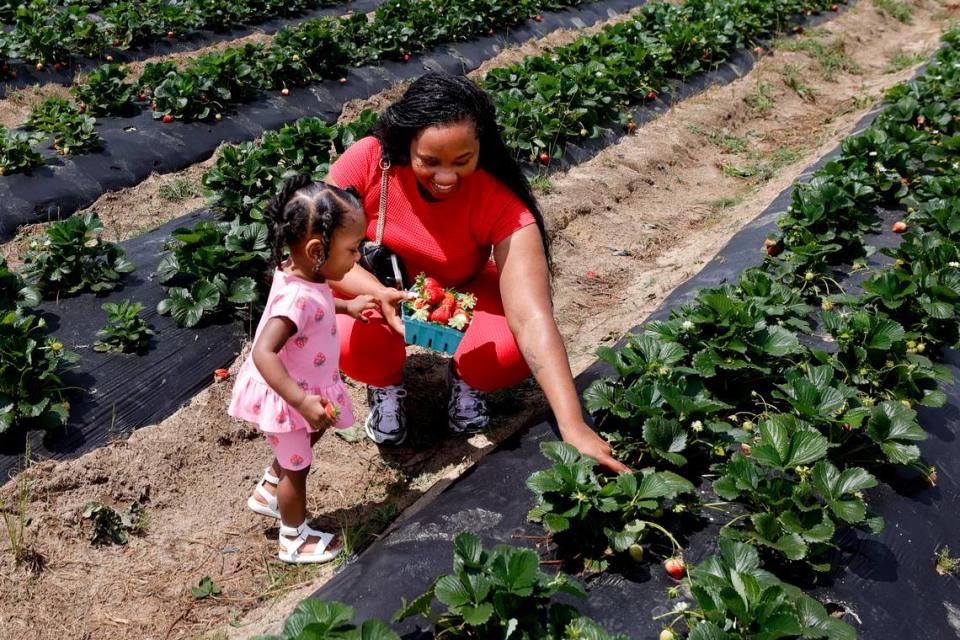
English said part of her job as a County Council representative is to bridge those connections between residents with questions, the school board and would-be developers. And from what she’s heard, it’s not that longtime residents are upset with the new housing.
“But they don’t want to have a Hardscrabble and a Clemson (roads) episode,” English said, referencing a fast-growing area in the northeastern part of the county, where traffic-laden roads and ongoing construction projects have caused frequent headaches. ”They want to be able to accommodate the growth.”
The environment in Lower Richland isn’t unique. South Carolina’s population has grown steadily in the last decade, and even more so since the COVID-19 pandemic. By some metrics, South Carolina is the most moved-to state in the country.
But despite the population growth, housing development actually slowed between 2010 and 2020, explained University of South Carolina researcher Joseph Von Nessen.
“We’ve seen a decade-long period of under-building,” Von Nessen said.
After the 2008 recession, he explained, housing development slowed, but the population – and demand for new housing – kept gradually increasing.
Von Nessen worked on the 2023 Palmetto State Housing Study and found that while population has grown steadily, building permits haven’t kept pace. Not for single-family or multi-family homes.
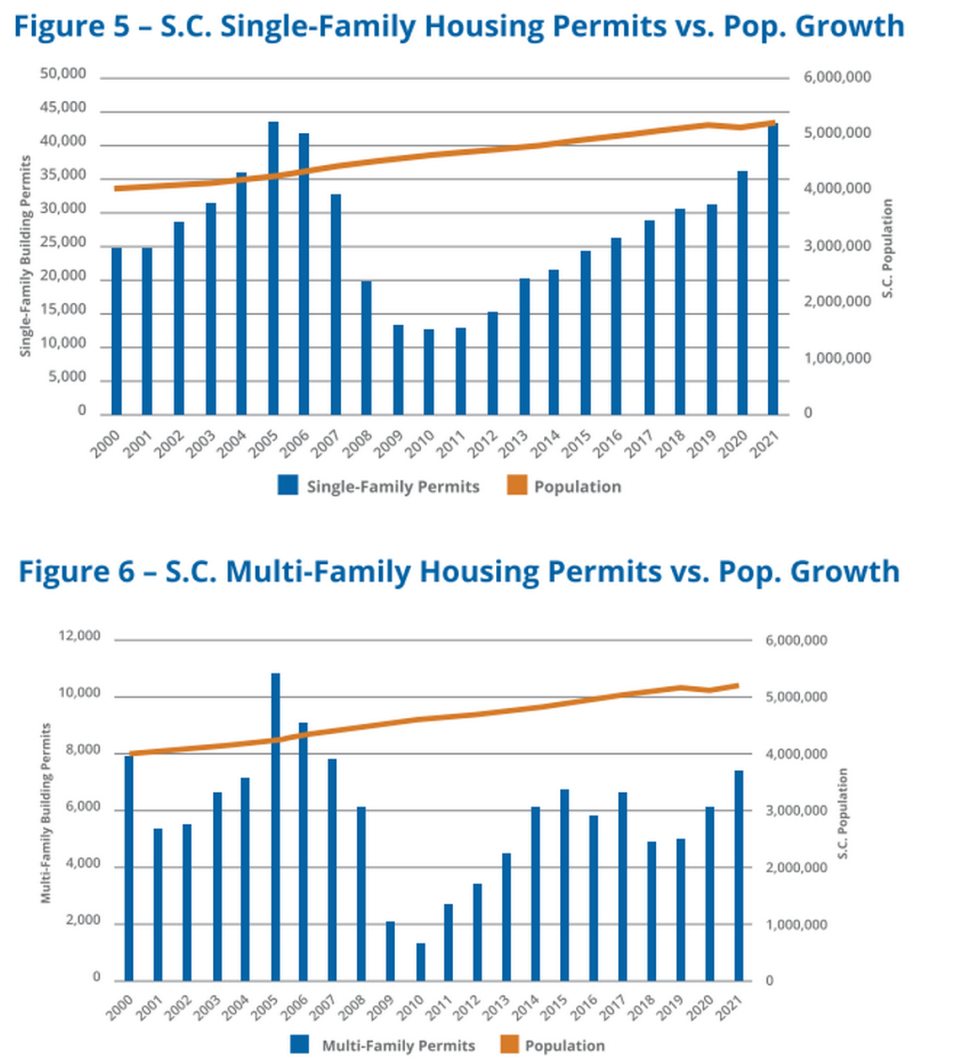
The housing market continues to fluctuate, with high interest rates driving demand down somewhat. But demand is still outpacing supply for new housing, creating a huge opportunity for developers, Von Nessen added.
And it’s going to take at least several more years for the supply to catch up, which means residents should expect to see more and more development in coming years, Von Nessen added.
For Cottle Strawberry Farm, they’re taking the area’s evolution in stride.Bulloch’s goal is still to be a key place for Lower Richland families and beyond.
“I could live many lifetimes and not have a location like this,” he said.


